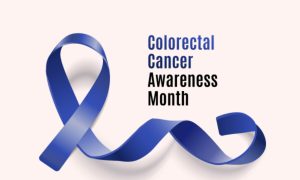Colorectal cancer (CRC) continues to be a major public health concern in the United States, and Delaware is no exception. As the third-most common cancer and second-leading cause of cancer-related deaths, colorectal cancer poses a serious threat to adults—especially those who are unaware of their risks, under-screened, or face healthcare barriers. Despite advances in screening tools and treatment, the key to saving lives lies in early detection, community education, and accessible screening programs.

Understanding the Colorectal Cancer Burden in Delaware
Delaware has seen relatively high incidence and mortality rates for colorectal cancer. This underscores a pressing need to educate communities, improve screening rates, and remove obstacles to care. Many residents, especially those who are uninsured or underinsured, do not receive regular colorectal cancer screenings—dramatically increasing their risk of late-stage diagnosis.
The Critical Role of Colorectal Cancer Screening
Why Screening Matters
“Screening plays an essential role in the early detection of all cancers, especially colorectal cancer,” says Trina Turner, MSN, RN-BC, LNC, Bayhealth’s Lung and Colorectal Nurse Navigator.
Colorectal cancer is unique in that it often begins as benign polyps that can be identified and removed before they become cancerous. Regular screenings allow physicians to detect abnormalities early—leading to better outcomes, simpler treatment, and a higher chance of survival.
What Screening Involves
There are multiple options for colorectal cancer screening:
-
Colonoscopy (the gold standard)
-
Fecal Immunochemical Test (FIT)
-
Stool DNA tests like Cologuard®
-
Flexible sigmoidoscopy
-
CT colonography (virtual colonoscopy)
The right screening method depends on your age, risk factors, and healthcare access. A healthcare provider or nurse navigator can help identify the best option.
Nurse Navigators: Bridging the Healthcare Gap
Turner emphasizes that many people miss vital screenings due to lack of insurance or awareness. That’s where Bayhealth’s nurse navigators and programs like Screening for Life step in. “My role is to help patients access screenings and follow-up care—even if they’re uninsured,” she says.
What is the Screening for Life Program?
Screening for Life is a state-funded initiative in Delaware that offers free cancer screenings to qualified adults who:
-
Have no health insurance or are underinsured
-
Meet specific income requirements
-
Are Delaware residents aged 40–64 (or younger if at high risk)
This program not only pays for colorectal cancer screenings but also connects individuals with primary care providers, helping them stay engaged in their healthcare journey.
Colorectal Cancer Risk Factors to Watch
Dr. Assar Rather, MD, FACS, FASCRS, a Colorectal and General Surgeon at Bayhealth, stresses that despite being a leading cause of death, colorectal cancer is highly treatable and often preventable when caught early. He highlights several common risk factors:
Lifestyle and Dietary Risks
-
Western-style diet (high in red/processed meat, low in fiber)
-
Obesity and lack of physical activity
-
Smoking and heavy alcohol use
Medical and Genetic Risks
-
Personal or family history of colorectal cancer
-
Inflammatory bowel diseases like Crohn’s disease or ulcerative colitis
-
Genetic syndromes like Lynch syndrome or FAP
Being aware of these risk factors can help individuals take preventive steps and advocate for earlier screenings when necessary.
When Should You Start Screening?
Dr. Rather advises most people to begin routine colorectal cancer screening at age 50. However, recent studies suggest that:
-
African Americans should begin screening at age 45
-
Individuals with a family history of colorectal cancer may need to start even earlier—sometimes in their 30s
Screening can be done by gastroenterologists, colorectal surgeons, or primary care physicians, depending on the test and individual risk factors.
Improving Community Health Through Awareness
The fight against colorectal cancer is not just clinical—it’s community-based. Public education campaigns, outreach events, and employer-sponsored wellness programs can play an important role in:
-
Reducing fear and stigma around screening
-
Encouraging conversations with healthcare providers
-
Connecting individuals with available local resources
By empowering patients with knowledge and access, Delaware has the opportunity to lead the way in preventing unnecessary deaths from colorectal cancer.
Frequently Asked Questions:
Q1: What is colorectal cancer and why is it dangerous?
A: Colorectal cancer starts in the colon or rectum and can develop from polyps over time. If not detected early, it can spread to other organs and become life-threatening.
Q2: Who is eligible for free colorectal screenings in Delaware?
A: Adults aged 40–64 who are uninsured or underinsured and meet income criteria may qualify through the Screening for Life program.
Q3: How often should I get screened for colorectal cancer?
A: Typically every 10 years starting at age 50 for colonoscopy. However, those with higher risk may need earlier and more frequent screenings.
Q4: Can I prevent colorectal cancer?
A: Yes. A healthy diet, regular exercise, avoiding tobacco, and routine screenings can significantly reduce your risk.
Q5: What are symptoms of colorectal cancer?
A: Symptoms may include rectal bleeding, changes in bowel habits, unexplained weight loss, and persistent abdominal pain—but many early cases show no symptoms at all.




